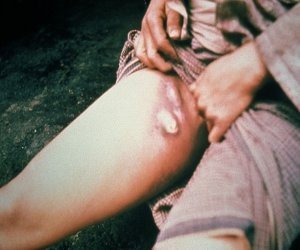HAMILTON, Ontario, Aug. 30 (UPI) -- The Black Death that decimated the population of Europe in the 14th century was definitely caused by bubonic plague, a DNA analysis of medieval bones has shown.
While some researchers have suggested the epidemic was in fact caused by a virus such as Ebola, the analysis of DNA from a London plague burial has confirmed the "plague" bacterium Yersinia pestis was responsible, NewScientist.com reported Tuesday.















